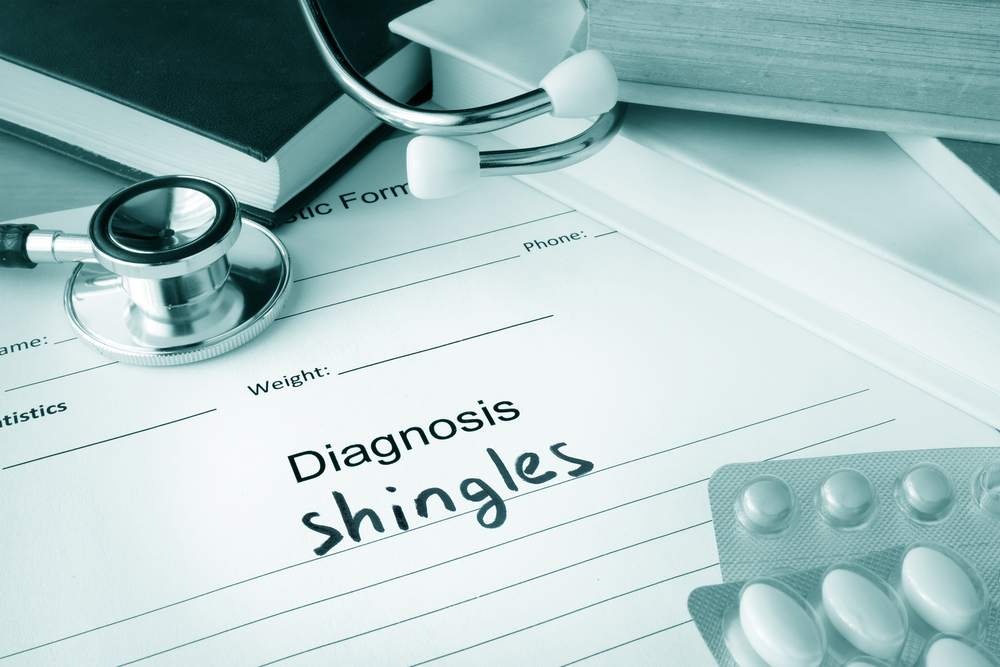By Erika Kalabacas, DO
 Shingles is caused by the varicella zoster virus, the same virus that causes chickenpox. Shingles is a painful condition marked by a rash and blisters to one side of the face or body. The rash forms blisters that typically scabs over in seven to 10 days and clears up within two to four weeks. Other symptoms of shingles can include fever, headache, chills and upset stomach.
Shingles is caused by the varicella zoster virus, the same virus that causes chickenpox. Shingles is a painful condition marked by a rash and blisters to one side of the face or body. The rash forms blisters that typically scabs over in seven to 10 days and clears up within two to four weeks. Other symptoms of shingles can include fever, headache, chills and upset stomach.
Although the rash can clear up in two to four weeks, the illness can also lead to the long-term condition known as post-herpetic neuralgia, marked by severe pain in the areas where the shingles rash appeared, even after the rash clears up.
Anyone who has had chickenpox can develop shingles. The varicella zoster virus remains dormant in the body until, for reasons not fully understood, reactivates causing Shingles. Most people will have only one episode in their lifetime, but it is possible to have multiple episodes
According to the Center for Disease Control (CDC), Shingles will affect almost one out of three people in the United States. About half of all cases occur in men and women 60 years old or older. The risk for shingles increases if you have a medical condition that compromises the immune system, or if you are taking immunosuppressive drugs, such as steroids or drugs that are given after organ transplantation.
If you have had chickenpox and are 60 years or older, the CDC recommends that you get the shingles vaccine. The vaccine, Zostavax, reduces the risk of developing shingles by 51% and post-herpetic neuralgia by 67%. It is given in one dose in a doctor’s office or pharmacy. For any additional questions about the vaccine or if you believe you have Shingles, see your healthcare provider.
Erika Kalabacas, DO is a Family Medicine Physician at Mather Primary Care Rocky Point.

